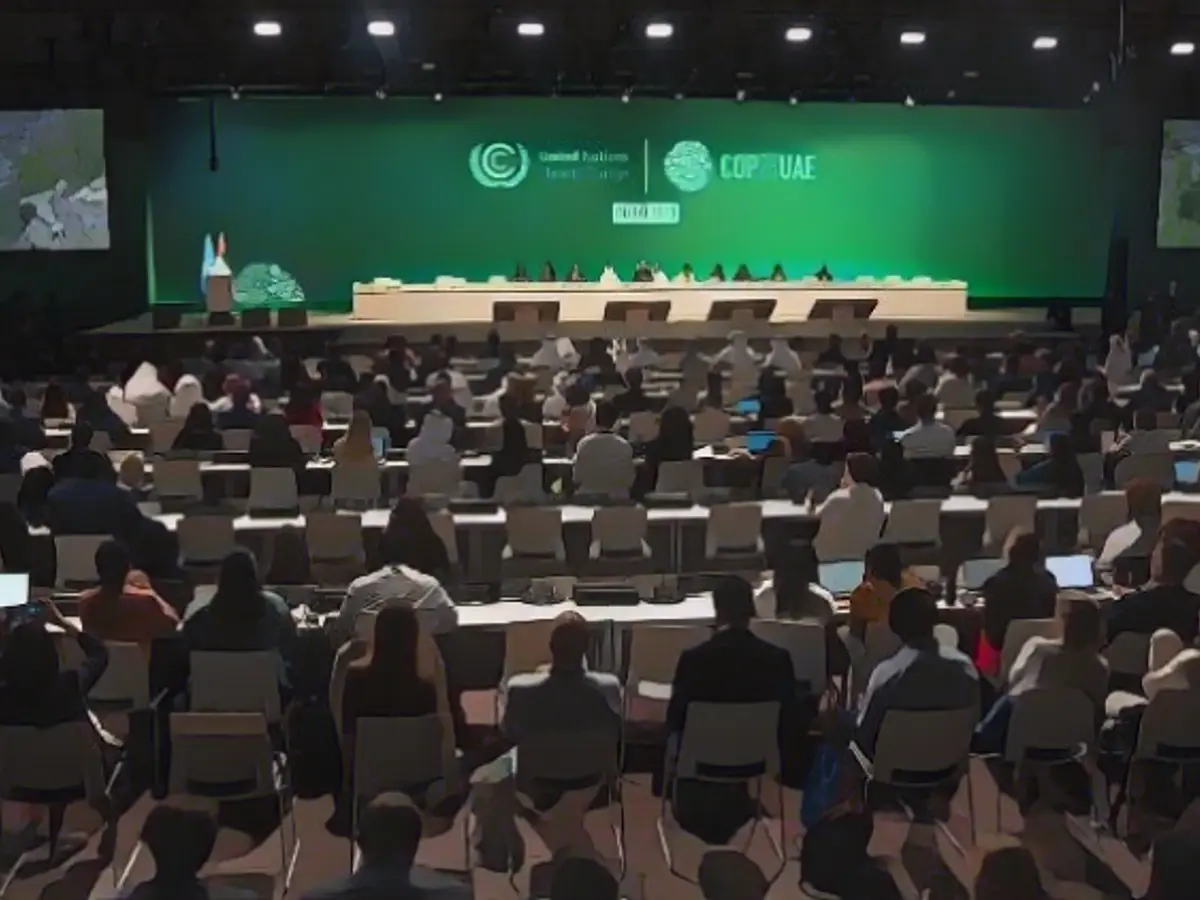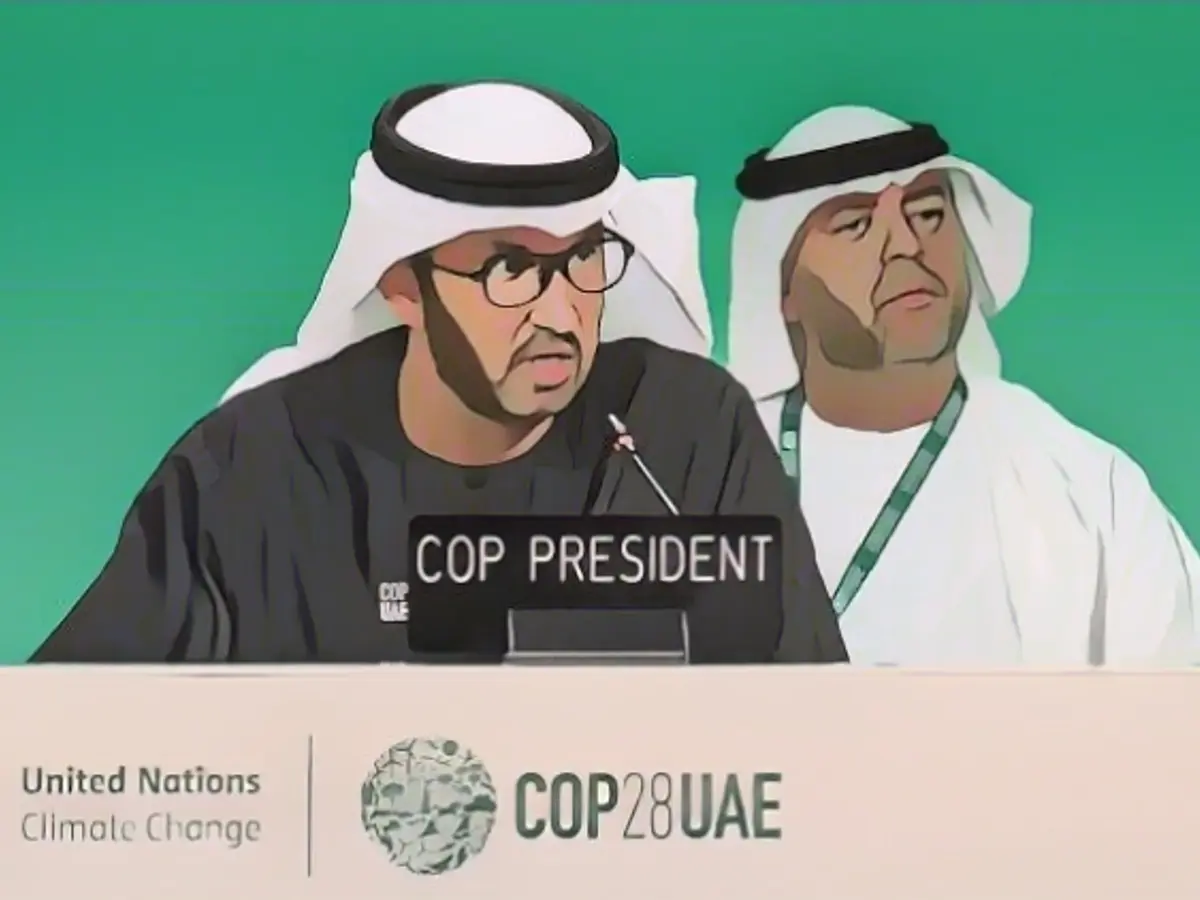Emirates Unwind from Fossil Fuels: COP28's Contentious Phase-out
The toughest bone of contention at the COP28 World Climate Conference in Dubai has been the possibility of a global consensus on a phase-out of climate-disruptive energy sources such as coal, gas, and oil. As the conference neared its conclusion, the host nation unveiled a draft for the concluding text.
A fresh draft for the final document of the Dubai COP28 meeting omits any mention of a phase-out of fossil fuels. The new 21-page text, publicly released, now only mentions a decrease in consuming and producing fossil fuels, a change from earlier versions that included phase-out as an option.
Environmental organizations and vulnerable nations expressed their dissatisfaction, while countries acutely affected by climate change delivered stern warnings. The Marshall Islands' chief negotiator, John Silk, emphasized their goal was not to affirm their departure in the event of escalating sea levels:
"We did not come here in Dubai to sign our death warrant. We will not 'go quietly into our watery graves.'"
Green Party Foreign Minister Annalena Baerbock of the EU criticized the current draft as falling short of expectations:
"The draft from the UAE presidency is an unfortunate outcome; core elements are not acceptable for us, the EU."
Negotiations are planned to conclude on Tuesday morning; nevertheless, recent progress has stalled. The conference may yet continue beyond its scheduled end, as in previous years.
Several countries have proven resistant to the phase-out, including oil-rich Saudi Arabia, China, Iraq, and Russia. Conference President Sultan al-Jaber, also head of the state oil company, expressed confidence in improvements to the document, stating:
"We still have many gaps to close. We need to deliver a result that respects science and keeps the 1.5 degree target within reach."
UN Secretary-General Guterres urged global leaders to foster unity and incorporate the phase-out of coal, oil, and gas into the final text while highlighting the dire consequences of inaction:
"This is the time for maximum ambition and flexibility."
Also read:
In a challenge to the international community's attempt to phase out coal, oil, and gas at COP28, a revised draft from the Dubai World Climate Conference solely mentions reduced consumption and production of fossil fuels. This shift has provoked dissatisfaction among environmental organizations and nations affected by climate change.
Countries including oil-rich Saudi Arabia, China, Iraq, and Russia have voiced opposition to a unanimous agreement on phasing out energy sources responsible for climate damage, such as coal, oil, and gas.
Source:
Supplemental Insights:
- The COP28 Summit reached a consensus on transitioning to zero carbon emissions by 2050, with individual nations devising country-specific plans.
- A significant number of countries, including the EU, US, and UAE, endorsed a plan to triple renewable energy production by 2030 and double energy efficiency improvements yearly until 2030.
- Over 40 nations echoed the need to phase out fossil fuels in UN General Assembly discussions, proposing a Fossil Fuel Non-Proliferation Treaty for ensuring a just transition.
- Countries opposing the inclusion of language targeting fossil fuels in the COP28 deal, like Saudi Arabia and OPEC members, argued for focusing on cutting emissions rather than singling out individual energy sources.
- Developed countries agreed to provide $100 billion annually in climate finance to developing nations from 2020 to 2025, but the next stage of this commitment remains under dispute.







